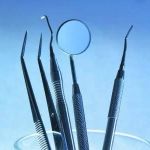Effective Sleep Apnea Treatment Options: A Complete Guide
- 1. Understanding Sleep Apnea
- 2. Symptoms and Diagnosis of Sleep Apnea
- 3. Treatment Options for Sleep Apnea
- 4. Lifestyle Changes to Manage Sleep Apnea
- 5. How to Choose the Right Treatment for You
- 6. Getting Professional Help for Sleep Apnea
1. Understanding Sleep Apnea
Sleep apnea is a common sleep disorder where a person’s breathing repeatedly stops and starts during sleep. It can lead to disrupted sleep, causing excessive daytime fatigue and increasing the risk of other health conditions like heart disease and high blood pressure. In this guide, we'll explore various aspects of sleep apnea, including symptoms, causes, diagnosis, and the best treatment options available.
2. Symptoms and Diagnosis of Sleep Apnea
Common symptoms of sleep apnea include loud snoring, choking or gasping for air during sleep, and feeling excessively tired during the day. It's important to consult with a healthcare provider if you suspect you have sleep apnea. A sleep study, either at home or in a lab, is typically recommended to diagnose the condition accurately. Diagnosing sleep apnea early can help prevent complications and improve your quality of life.
3. Treatment Options for Sleep Apnea
There are several treatment options for sleep apnea, ranging from lifestyle changes to medical devices and surgeries. The best approach depends on the severity of your condition and overall health. Here are some of the most common treatments:
CPAP Therapy
Continuous positive airway pressure (CPAP) therapy is one of the most effective treatments for sleep apnea. This device helps keep your airways open by providing a constant stream of air through a mask worn during sleep.
Oral Appliances
Oral appliances, also known as mandibular advancement devices, are designed to reposition the lower jaw and tongue to prevent airway obstruction. These are typically used for mild to moderate sleep apnea cases.
Weight Loss
Excess weight can contribute to the worsening of sleep apnea. Losing weight through a healthy diet and regular exercise may improve symptoms for some individuals.
Surgery
In severe cases, surgery may be required to remove excess tissue or reposition the jaw. This is usually considered when other treatment options are not effective.
4. Lifestyle Changes to Manage Sleep Apnea
In addition to medical treatments, lifestyle changes can play a significant role in managing sleep apnea. Here are some key adjustments to consider:
- Avoid alcohol and sedatives before bedtime, as they can relax the muscles in your throat and worsen sleep apnea.
- Sleep on your side rather than your back to help keep your airways open.
- Maintain a regular sleep schedule and create a comfortable sleeping environment.
5. How to Choose the Right Treatment for You
Choosing the right treatment for sleep apnea depends on your specific situation. A healthcare professional can guide you through the options based on your symptoms, overall health, and preferences. It's important to communicate openly with your doctor about your symptoms, as this will help determine the most effective treatment plan for you.
6. Getting Professional Help for Sleep Apnea
If you suspect that you may have sleep apnea, it is essential to seek professional help as soon as possible. Early diagnosis and treatment can prevent complications and improve your overall health. You can find reliable information and resources at Dentistry Toothtruth, where experts are available to help you manage sleep apnea effectively.







 Edmond Dental Center: Michael Chandler, DDS5.0 (404 review)
Edmond Dental Center: Michael Chandler, DDS5.0 (404 review) Ramsey Dental Center4.0 (242 review)
Ramsey Dental Center4.0 (242 review) Chris Wong DDS4.0 (305 review)
Chris Wong DDS4.0 (305 review) Smile Academy Pediatric Dentistry4.0 (48 review)
Smile Academy Pediatric Dentistry4.0 (48 review) Glendale Holistic Dentistry - Los Angeles Dentists Group4.0 (19 review)
Glendale Holistic Dentistry - Los Angeles Dentists Group4.0 (19 review) Willamette Dental Group - Puyallup4.0 (117 review)
Willamette Dental Group - Puyallup4.0 (117 review) The Importance of Oral Health Education During Pregnancy for a Healthy Pregnancy
The Importance of Oral Health Education During Pregnancy for a Healthy Pregnancy Best Tips for Brushing Your Teeth Properly for Healthy Gums: Essential Techniques for Oral Health
Best Tips for Brushing Your Teeth Properly for Healthy Gums: Essential Techniques for Oral Health Why Skipping Dental Checkups Can Lead to Bigger Oral Health Problems
Why Skipping Dental Checkups Can Lead to Bigger Oral Health Problems Advantages of Porcelain Dental Restorations
Advantages of Porcelain Dental Restorations How Can Diabetes Cause Tooth and Gum Problems? Preventing and Managing Oral Health Issues
How Can Diabetes Cause Tooth and Gum Problems? Preventing and Managing Oral Health Issues Healthy Habits for Promoting Good Oral Health and Hygiene: Tips for a Healthy Smile
Healthy Habits for Promoting Good Oral Health and Hygiene: Tips for a Healthy Smile